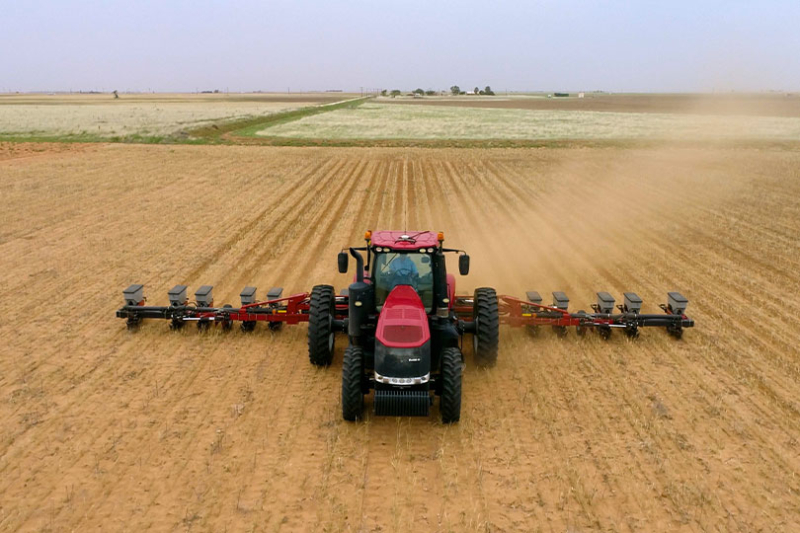By Shelby Shank
Field Editor
Water shortages, loss of agricultural land, regulatory overreach and foreign ownership continue to put pressure on Texas farmers and ranchers. Texas Farm Bureau (TFB) State Legislative Director Charlie Leal testified before the House Committee on Agriculture & Livestock urging lawmakers to take action on these pressing issues.
Water remains a top concern for Texas agriculture. With increasing demand and limited supply, farmers and ranchers across the state are struggling to secure the water they need.
“Texas agriculture faces a critical water supply challenge,” Leal said. “We have already seen the devastating effects of the issue in the Rio Grande Valley, where we have already lost the sugarcane industry to the low availability of water.”
Leal noted the need for additional water funding and a dedicated revenue source to address Texas’ long-term water challenges.
The loss of agricultural land is also a significant concern, especially as the state’s population continues to grow.
Every day, Texas loses over 1,000 acres of agricultural land to development, threatening farmers’ ability to grow food and fiber. TFB supports increased funding and statutory changes for the Texas Farm & Ranch Lands Conservation Program, administered by the Texas Parks and Wildlife Department, to help preserve farmland and prioritize keeping it in production for future generations.
Regulatory overreach, Leal said, continues to place additional burdens on farmers and ranchers.
Despite the overwhelming passage in 2023 of Proposition 1, which protects farmers and ranchers from unnecessary municipal regulations, some cities continue to impose restrictive rules.
Farmers and ranchers across the state are still required to obtain permits to own livestock, abide by excessive buffer zone requirements and comply with outdated zoning laws that contradict the protections established under HB 1750. Some cities have refused to update their ordinances, forcing farmers and ranchers to navigate costly legal battles just to continue farming.
“We are supportive of changes to statute that would allow farmers and ranchers to recover legal fees when they have to take a city to court to take advantage of their statutory or constitutional rights,” Leal said.
Agricultural pests and diseases pose a growing threat to the state’s livestock and poultry industries.
Avian influenza and the New World screwworm could cause significant economic damage if left unchecked. TFB supports the efforts of state and federal agencies to prevent outbreaks and protect farmers and ranchers from economic losses.
Feral hogs continue to wreak havoc on Texas farms and ranches, causing millions of dollars in damage each year.
“A large group of feral hogs can uproot about 10 acres of recently planted corn in a single night, resulting in a cost of $3,500, with replanting leading to lower yields and additional expenses,” Leal said.
TFB urges lawmakers to implement a more aggressive, well-funded approach to manage the population and minimize financial losses for farmers and ranchers.
Processing delays also hurt ranchers’ profitability.
“Processing demand for livestock continues to exceed capacity, forcing many producers to wait over a year for processing dates,” Leal said. “Farmers and ranchers contend with lost sales and low profitability while waiting on a processing date.”
TFB calls on lawmakers to explore solutions that expand processing capacity and improve market access for smaller farms and ranches.
Leal also noted TFB supports legislative efforts to prevent foreign entities from purchasing agricultural land when it threatens national security or creates unfair trade advantages.
TFB remains committed to working with lawmakers to protect Texas agriculture.
“Texas Farm Bureau appreciates the committee’s dedication to addressing these critical agricultural issues,” Leal said. “We stand ready to work with the committee on solutions that strengthen Texas agriculture.”
Click here for more on TFB’s priority issues this legislative session.


Leave A Comment